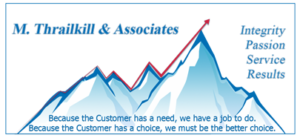Interviewing
It is not enough to say you have the skills. You have to prove it!
As interviews get tougher, the people on both sides of the table are savvier when it comes to the difficult questions. On one side, job seekers are armed with how-to-books and websites detailing ways to be smarter about selling themselves. On the other side, employers are using new techniques such as behavior based interviewing, virtual face-to face interviewing via Skype or FaceTime and rigorous multi-interview days and strenuous panel interviews. Be prepared! As Benjamin Franklin said, “By failing to prepare, you are preparing to fail”.
Here are some tips on how you can put your best foot forward in a job interview without putting your foot in your mouth.
- Prepare for the interview by printing out a complete and up to date resume with your educational and work background. Bring a copy of your resume for yourself and one for each person you are interviewing with. And then one more, just in case. You should also have a separate reference list sheet that would be given to employers upon their request.
- Do your due diligence and research! Learn something about the company or business and think about how you can contribute to its success. The connecting points between you and your potential new job are critical.
- Be prepared to answer an employer’s question with specific examples of the skills you have. It is not enough to say you are a problem-solver or a shrewd financial genius or a great leader of teams. You must effectively communicate and give specific examples of the ways you surpass others in selected areas. If you are going to talk the talk, you better be able to show them how you walk the walk.
- Be well groomed with clean hair, body and fingernails. Do not use too much perfume or cologne. Do not wear too much jewelry or make-up. Dress in attire appropriate to the job or culture of the organization. If in doubt, ask your recruiter to find out what is appropriate.
- Find out where the interview will take place ahead of time. Go alone or leave others outside the building to wait for you. Be at least five minutes early.
- Smile when you meet the interviewer and be the first to extend your hand to shake. It does break the ice. Do not eat anything, chew gum or smoke during the interview. Do not fidget while waiting or during interview.
- Don’t sit down until you are asked to do so. Let the interviewer take the initiative. Look directly at the interviewer when talking, but do so in a relaxed, friendly manner. Smile!
- Don’t use slang expressions. Answer questions in full rather than “yes” or “no”.
- Never criticize other people or previous employers. If you are unhappy at your current or previous employer then communicate this in a positive manner. Tell the interviewer the challenges you may have working for a certain employer but ALSO what you have gained from working for that company.
- Don’t contradict the interviewer or discuss personal problems, politics or religion.
- Relate your qualifications and experience readily. Stress your strong points. Show a positive attitude.
- Leave promptly after your interview. But before you leave, thank the interviewer and be sure you have their business card. Send a brief note conveying your gratitude for their time and your interest in the position and briefly reiterate what you can bring to the organization.


